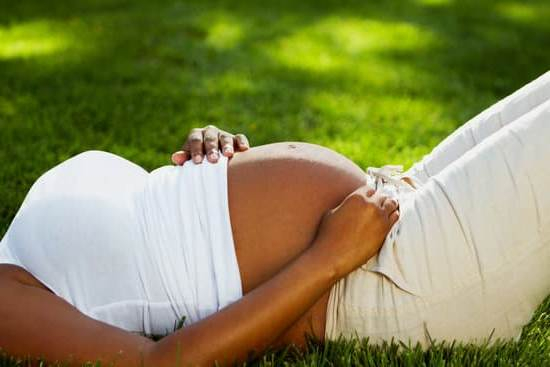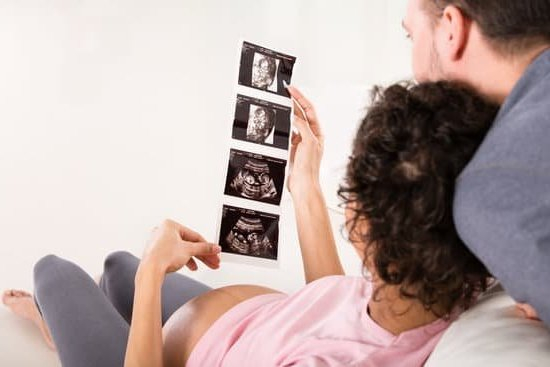Are you wondering, “how soon after ovulation can you test for pregnancy“? Understanding ovulation and its relation to the timing of pregnancy tests is essential for accurate results. The process of ovulation plays a crucial role in determining when it is best to take a pregnancy test.
Ovulation is an important factor when it comes to determining the ideal time for taking a pregnancy test. By understanding the process of ovulation and its relationship to pregnancy testing, individuals can maximize their chances of obtaining accurate results.
The signs and symptoms of ovulation can help individuals determine the best time for testing. Recognizing these signs can provide valuable insight into the timing of ovulation and when it is appropriate to take a pregnancy test for reliable results. Understanding how ovulation relates to pregnancy testing ensures that individuals can make informed decisions about when to take a test to achieve accurate results.
Signs of Ovulation
Ovulation is a crucial part of the menstrual cycle for women who are trying to conceive. Understanding the signs and symptoms of ovulation can help determine the best time for testing for pregnancy. Here are some common signs and symptoms of ovulation that can assist in predicting when to take a pregnancy test:
- Increased cervical mucus: As ovulation approaches, there is an increase in cervical mucus, which becomes clearer, thinner, and more slippery. This can be a helpful indicator of ovulation and fertility.
- Changes in basal body temperature: Tracking basal body temperature can also help identify ovulation. A woman’s basal body temperature will dip slightly before ovulation and then rise after ovulation has occurred.
- Ovulation pain or cramping: Some women experience mild discomfort or pain on one side of their lower abdomen during ovulation, known as mittelschmerz.
Once these signs are identified, it is important to know when it is appropriate to take a pregnancy test to ensure accurate results. It is recommended to wait until at least 12-14 days after ovulation before testing for pregnancy. This allows enough time for the hormone hCG (human chorionic gonadotropin) to build up in the body if conception has occurred.
Keep in mind that every woman’s cycle is different, so tracking these signs over multiple cycles can help in determining the most accurate time for testing. Additionally, factors such as irregular cycles and fertility treatments can impact the timing of pregnancy tests and should be taken into consideration when attempting to conceive.
The Menstrual Cycle
The first phase of the menstrual cycle is menstruation, which typically lasts for about 3-7 days. During this time, the uterine lining sheds if fertilization did not occur during the previous cycle. Following menstruation is the follicular phase, in which the body prepares for ovulation. This phase can vary in length and is characterized by the development of ovarian follicles.
Ovulation usually occurs around day 14 of a 28-day cycle, but it can vary based on individual factors such as stress, illness, or hormonal imbalances. After ovulation comes the luteal phase, during which the ruptured ovarian follicle transforms into a structure called the corpus luteum and begins to produce progesterone in preparation for a potential pregnancy.
Understanding these different phases of the menstrual cycle is crucial when determining how soon after ovulation you can test for pregnancy. It’s important to consider both the variability of individual cycles and the typical timing of ovulation within a standard menstrual cycle.
It’s recommended to wait at least 12-14 days after ovulation before taking a pregnancy test for accurate results. Testing too early may result in a false negative because there may not be enough hCG (human chorionic gonadotropin) hormone present to be detected by the test.
However, some sensitive early detection tests may be able to provide reliable results as soon as 7-10 days past ovulation. It’s essential to follow the instructions provided with any home pregnancy test and consult with a healthcare provider if there are any concerns about testing too soon after ovulation.
| Phase | Timing |
|---|---|
| Menstruation | 3-7 days |
| Follicular Phase | Varies in length |
| Ovulation | Around day 14 of a 28-day cycle |
| Luteal Phase | Begins after ovulation and lasts until menstruation begins again. |
Early Pregnancy Detection
When it comes to early pregnancy detection, there are several types of pregnancy tests available on the market. These include over-the-counter urine tests and blood tests performed by healthcare professionals. Each type of test has its own level of accuracy in detecting pregnancy soon after ovulation.
Over-the-Counter Urine Tests
Over-the-counter urine tests are commonly used for early pregnancy detection. These tests work by detecting the presence of human chorionic gonadotropin (hCG) in the urine.
This hormone is produced by the placenta shortly after a fertilized egg attaches to the uterine lining, making it a reliable indicator of pregnancy. Most over-the-counter urine tests claim to be able to detect pregnancy as early as the first day of a missed period, but some may also be sensitive enough to provide accurate results even before a missed period.
Blood Tests
Blood tests for pregnancy, on the other hand, are conducted in a healthcare setting and can provide even earlier detection than urine tests. There are two types of blood tests: qualitative hCG test and quantitative hCG test. The qualitative test simply checks for the presence of hCG in the blood, while the quantitative test measures the exact amount of hCG present. Blood tests are considered highly accurate and can detect pregnancy as soon as 7-12 days after conception.
Accuracy of Early Pregnancy Tests
The accuracy of early pregnancy tests depends on various factors, including how well they detect low levels of hCG and how soon they can detect it after ovulation. While some over-the-counter urine tests claim high sensitivity to low levels of hCG, false negatives can occur if testing is done too early. Blood tests, being more sensitive, offer greater accuracy when testing for pregnancy soon after ovulation.
How Soon Can You Test
After ovulation, the body releases an egg which can be fertilized by sperm, leading to pregnancy. Since sperm can survive for up to 5 days inside a woman’s body, it is possible for conception to occur within this window of time. Understanding how soon after ovulation you can test for pregnancy is essential for obtaining accurate results.
When trying to conceive, it is important to determine the earliest recommended time to take a pregnancy test after ovulation in order to avoid false negatives. Here are some key points to consider when deciding on the timing of a pregnancy test:
- The most sensitive pregnancy tests can detect hCG (human chorionic gonadotropin) in urine as early as 6-8 days after ovulation.
- For the most accurate results, it is best to wait until at least 12-14 days after ovulation before testing for pregnancy.
- Testing too early can result in a false negative, as hCG levels may not yet be high enough to be detected by the test.
Factors such as the length of your menstrual cycle and the regularity of your ovulation can impact how soon you can test for pregnancy. It is also important to keep in mind that different types of pregnancy tests have varying levels of sensitivity and accuracy. By understanding these factors and closely monitoring your menstrual cycle, you can determine the best time for testing in order to obtain reliable results.
Factors Affecting Test Results
Pregnancy testing soon after ovulation can be affected by various factors that may impact the accuracy of the results. One crucial factor to consider is whether a woman has irregular menstrual cycles.
Women with irregular periods may find it more challenging to pinpoint the exact timing of ovulation, which can make it difficult to determine when to take a pregnancy test. In such cases, tracking basal body temperature or using ovulation predictor kits may help in identifying the most appropriate time for testing.
Another significant factor that can affect pregnancy test results is fertility treatments. Women who undergo fertility treatments such as in vitro fertilization (IVF) or intrauterine insemination (IUI) may have higher levels of hCG (human chorionic gonadotropin hormone) due to medications and procedures involved in these treatments.
As a result, they might be able to detect pregnancy earlier than women who conceive naturally. It is essential for women undergoing fertility treatments to consult with their healthcare provider about the best timing for pregnancy testing.
Additionally, certain medications and medical conditions can also impact the accuracy of pregnancy tests. For example, certain drugs used for treating infertility or medical conditions such as ovarian cysts can interfere with HCG levels, leading to false-positive or false-negative results in home pregnancy tests.
| Factor | Impact on Test Results |
|---|---|
| Irregular Menstrual Cycles | Makes it challenging to determine the best time for testing |
| Fertility Treatments | May result in higher hCG levels, affecting the timing of pregnancy detection |
Tips for Testing
Tracking Your Cycle
One of the most important tips for ensuring accurate pregnancy test results soon after ovulation is to track your menstrual cycle. By knowing when you ovulate, you can better determine the ideal time to take a pregnancy test.
Ovulation typically occurs around 14 days before the start of your next period, so if you have a regular 28-day cycle, testing around day 28 or later would be more accurate. However, if you have an irregular cycle, tracking other signs of ovulation, such as changes in cervical mucus or basal body temperature, can also help pinpoint the best time for testing.
Choosing the Right Test
When it comes to testing for pregnancy soon after ovulation, it’s crucial to choose the right type of test. Some home pregnancy tests are designed to detect lower levels of hCG (human chorionic gonadotropin) – the hormone produced during pregnancy – earlier than others. Look for tests that specifically mention early detection or sensitivity levels of 25mIU/mL or lower.
These tests are more likely to provide accurate results sooner after ovulation. Additionally, consider using a digital test that clearly displays “pregnant” or “not pregnant,” as opposed to traditional line tests which may be harder to interpret.
Avoiding Common Mistakes
To ensure reliable results from a pregnancy test soon after ovulation, it’s essential to avoid common mistakes that can affect accuracy. One common mistake is testing too early – ideally wait until at least a week after ovulation for the most reliable result.
Additionally, be sure to follow the instructions on the packaging carefully and use a timer to monitor the development of results within the specified timeframe. Using first-morning urine is recommended as it contains higher levels of hCG, and avoiding excessive fluids before testing can also help in obtaining accurate results.
Exploring Other Options
In conclusion, when it comes to determining how soon after ovulation you can test for pregnancy, it’s crucial to understand the intricacies of the menstrual cycle and the various signs of ovulation. By familiarizing yourself with these aspects, you can better time your pregnancy test for accurate results. However, despite following all the recommended guidelines, some factors could still affect the accuracy of your test results.
If early testing yields uncertain results or if you want confirmation through other means, there are alternative methods available. One option is a blood test, which can detect pregnancy hormones as early as 6-8 days after ovulation. This method provides a more precise measurement of hormone levels compared to urine tests. Another option is an ultrasound, which can confirm pregnancy as early as 5-6 weeks after the start of your last menstrual period.
Ultimately, whether you opt for an alternative method or choose to wait for a more definitive result with a standard home pregnancy test, it’s important to remember that every woman’s body is unique. Consult with your healthcare provider if you have any concerns about the timing or accuracy of your pregnancy test results. By being well-informed and seeking professional guidance when needed, you can navigate this exciting and sometimes uncertain time with confidence and peace of mind.
Frequently Asked Questions
How Long After Ovulation Will You Get a Positive Pregnancy Test?
The timing of when you can get a positive pregnancy test after ovulation can vary for each woman. Typically, it takes about 8-10 days after ovulation to detect the hCG hormone in your urine, which is what pregnancy tests look for.
How Soon Will a Pregnancy Test Read Positive?
A pregnancy test can read positive as early as 7-10 days after conception, but some tests may not be sensitive enough to detect the hCG hormone until a few days later. It’s important to follow the instructions on the pregnancy test packaging and wait until the recommended time to take the test for accurate results.
Can You Take a Pregnancy Test 6 Days After Ovulation?
Yes, you can take a pregnancy test 6 days after ovulation, but it may be too early for an accurate result. It’s best to wait until closer to your expected period start date, or at least 8-10 days after ovulation, to improve the likelihood of getting an accurate result.

Welcome to my fertility blog. This is a space where I will be sharing my experiences as I navigate through the world of fertility treatments, as well as provide information and resources about fertility and pregnancy.





